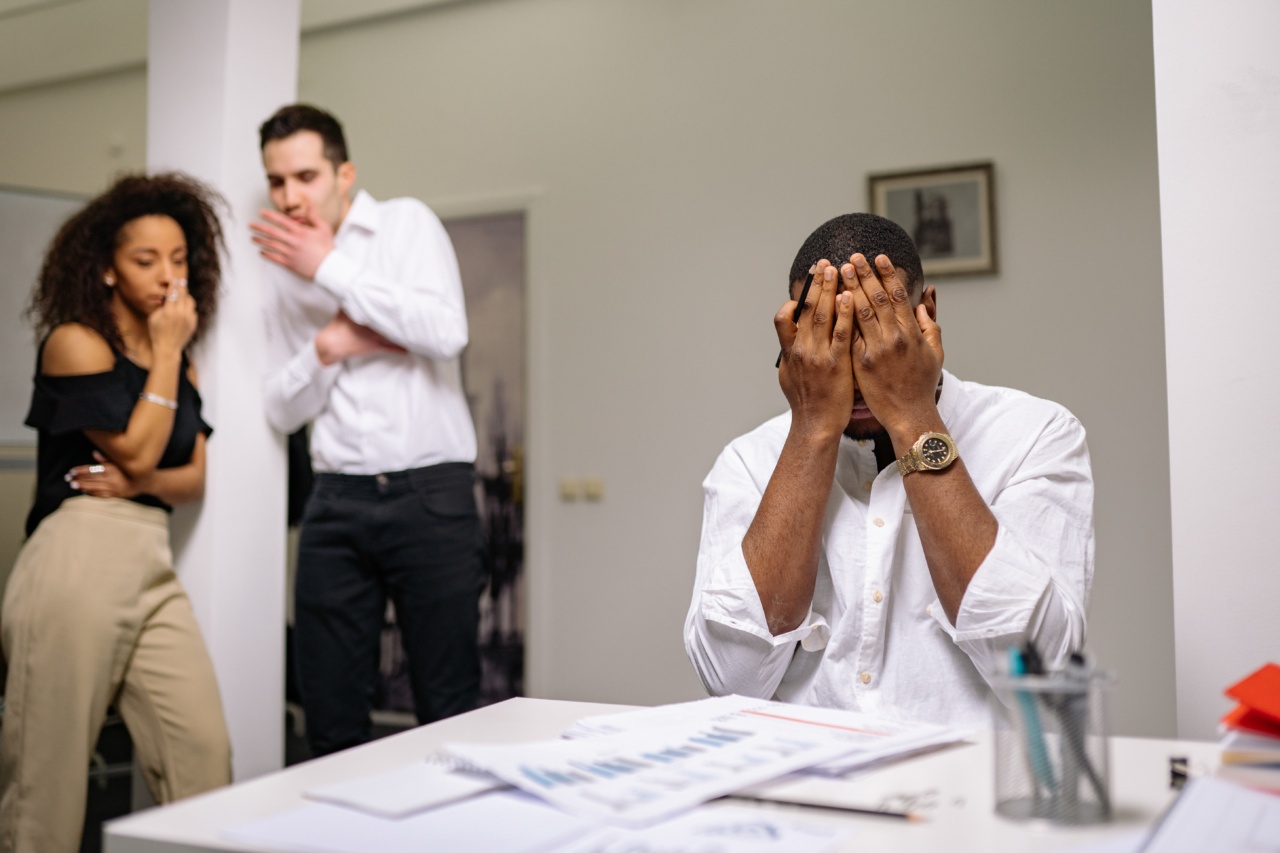In today’s society, there is a growing awareness and acceptance of various forms of anxiety.
While most people are familiar with common types of anxiety such as social anxiety or generalized anxiety disorder, there is one particular type that often goes unnoticed or is dismissed as trivial – sexual anxiety.
The Nature of Sexual Anxiety
Sexual anxiety refers to the fear, worry, or apprehension related to sexual activities or situations.
It can manifest in various ways, such as performance anxiety, fear of intimacy, concerns about body image, or even anxiety about not experiencing sexual desire or pleasure. These apprehensions can significantly impact one’s confidence, self-esteem, and overall sexual well-being.
Causes of Sexual Anxiety
Sexual anxiety can be caused by a multitude of factors, including:.
- Past Traumatic Experiences: Any previous negative sexual experiences, such as abuse or assault, can result in deep-rooted anxiety.
- Body Image Issues: Society’s unrealistic beauty standards can make individuals feel self-conscious about their physical appearance, hindering their sexual confidence.
- Cultural and Religious Beliefs: Upbringing and cultural background can perpetuate stigmas around sex, causing individuals to experience guilt, shame, or fear regarding their sexuality.
- Lack of Education: Insufficient knowledge about sexual health, consent, and pleasure can lead to anxiety and uncertainty about what is considered normal or acceptable.
- Relationship Problems: Difficulties in a relationship, such as trust issues or communication problems, can contribute to sexual anxiety.
The Impact of Sexual Anxiety
Sexual anxiety can have a significant impact on one’s mental, emotional, and physical well-being. Some of the effects may include:.
- Low Self-Esteem: Anxiety about sexual performance or appearance can erode self-confidence and lead to negative self-perception.
- Depression and Stress: Constant worry and fear related to sexual experiences can contribute to the onset of depression and heightened stress levels.
- Relationship Strain: Sexual anxiety can result in strained relationships or avoidance of intimate connections due to fear of judgment or inadequacy.
- Sexual Dysfunction: In severe cases, sexual anxiety can lead to difficulties achieving or maintaining an erection (erectile dysfunction) for men or experiencing orgasm for both men and women (anorgasmia).
Overcoming Sexual Anxiety
Fortunately, sexual anxiety is a treatable condition. With the right approach and support, individuals can work towards overcoming their fears and reclaiming their sexual well-being. Here are some strategies that can help:.
1. Education and Communication
Learn about sexual health, consent, and pleasure. Openly communicate with your partner(s) about your fears, desires, and expectations. A supportive and understanding partner can make a significant difference in overcoming sexual anxiety.
2. Therapy and Counseling
Seeking professional help from a therapist or counselor who specializes in sexual health can provide guidance, support, and coping techniques to address and overcome sexual anxiety.
Therapeutic approaches, such as cognitive-behavioral therapy (CBT), mindfulness-based techniques, or sex therapy, can be beneficial.
3. Self-Exploration and Body Positivity
Engage in self-exploration to understand and appreciate your own body. Embrace body positivity by challenging societal beauty standards. Focus on self-care and engage in activities that make you feel good about yourself.
4. Gradual Exposure and Sensate Focus
Gradually expose yourself to the feared sexual situations or activities in a safe and controlled manner. Practice sensate focus exercises, which involve focusing on sensual touch to enhance pleasure and intimacy without the pressure of performance.
5. Relaxation Techniques and Mindfulness
Practice relaxation techniques like deep breathing, meditation, or yoga to reduce anxiety levels. Incorporate mindfulness into your sexual experiences by staying present in the moment, focusing on sensations, and letting go of intrusive thoughts.
6. Medication Options
In some cases, medication may be prescribed to manage anxiety symptoms. Antidepressants or anti-anxiety medications can be beneficial, but it is important to consult with a medical professional to determine the appropriate course of action.
7. Couple’s Therapy
Consider couple’s therapy if sexual anxiety is affecting your relationship. Working together with a therapist can help improve communication, build trust, and create a supportive environment for addressing sexual anxieties.
Embracing Sexual Wellness
Sexual anxiety is common, and there is no shame in experiencing it. By acknowledging and addressing our fears, we can begin the journey towards sexual wellness.
Remember, seeking help from professionals and building a supportive network can make a significant difference in overcoming sexual anxiety and ultimately enhancing our overall well-being.
Conclusion
Sexual anxiety is a real and valid concern that affects many individuals. It is essential to understand the causes, impact, and strategies for overcoming sexual anxiety.
By facing our fears and seeking appropriate support, we can regain control of our sexual well-being and lead fulfilling and satisfying lives.































